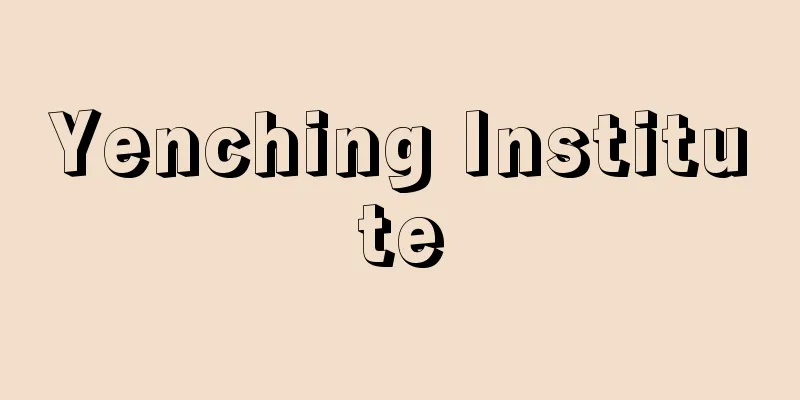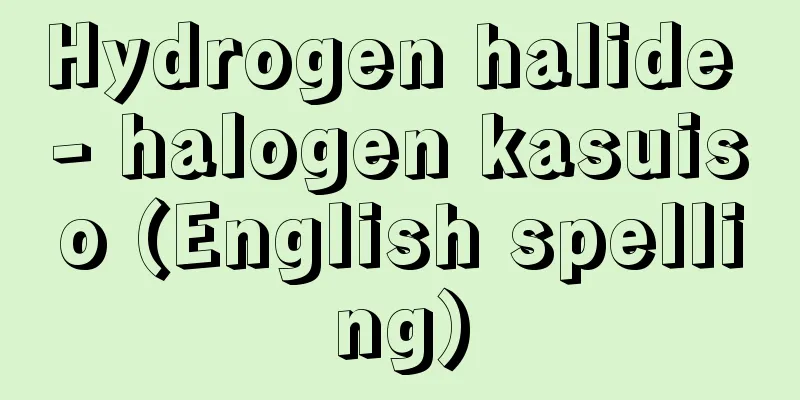Security Ordinance - Hoanjourei

|
This law was used to suppress anti-government speech and actions during the Meiji period. Negotiations for treaty revision, conducted under Foreign Minister Inoue Kaoru in the first Ito Hirobumi cabinet, were tentatively concluded in 1887 (Meiji 20) on the condition that foreign judges would be employed in trials of crimes committed by foreigners. However, this was seen as a humiliating violation of Japanese legal rights, and the Freedom and People's Rights Movement intensified, leading to the launch of the Three Great Cases Petition Movement, which called for freedom of speech and assembly, reduction of land tax, and restoration of diplomacy (treaty revision). Under the orders of Home Minister Yamagata Aritomo and Superintendent General Mishima Michitsune, who feared that the situation would escalate into a movement to overthrow the government, this law was suddenly promulgated on December 25 of the same year and put into effect on the same day. Of the seven articles, the most important one is Article 4, which provides that those suspected of plotting civil war or disturbing public order must evacuate to a place three miles outside the Imperial Palace for three years. Over the course of several days from the 26th, 570 civil rights debaters, including Toru Hoshi, Yukio Ozaki, Kenkichi Kataoka, and Chomin Nakae, were ordered to leave, and Kataoka and other protesters were imprisoned. The order was continued after that, but was abolished in June 1898. [Shozo Matsunaga] [Reference item] |Source: Shogakukan Encyclopedia Nipponica About Encyclopedia Nipponica Information | Legend |
|
明治時代、反政府言動を弾圧した法律。第一次伊藤博文(ひろぶみ)内閣の井上馨(かおる)外相の下で進められた条約改正交渉は、外国人犯罪裁判に外国人裁判官を採用するなどの条件で1887年(明治20)にいちおうの妥結をみた。しかしこれは日本の法権を侵害する屈辱的なものであるとして、自由民権派の政府攻撃が高まり、言論集会の自由、地租軽減、外交挽回(ばんかい)(条約改正)を内容とする三大事件建白運動が展開された。倒閣運動へと激化するのを恐れた山県有朋(やまがたありとも)内相、三島通庸(みちつね)警視総監の下で、同年12月25日突如公布、即日施行されたのが本法である。全7条のうち、内乱陰謀や治安妨害のおそれある者を3年以内、皇居外三里の地へ退去せしめるとした第4条が主体である。26日から数日間に、星亨(とおる)、尾崎行雄(ゆきお)、片岡健吉、中江兆民(ちょうみん)ら民権派の論客570名に退去命令が出て、片岡ら抵抗者は投獄された。その後も発動されたが、98年6月廃止となった。 [松永昌三] [参照項目] |出典 小学館 日本大百科全書(ニッポニカ)日本大百科全書(ニッポニカ)について 情報 | 凡例 |
<<: Security measures - Hoanshobun
>>: Security Police - Hoan Keisatsu
Recommend
Tacoma - Tacoma (English spelling)
Washington is a city on the Puget Sound in the we...
Joint litigation - Kyodo Sosho Sanka
The joining of a third party as a co-plaintiff or ...
Apinaye - Apinaye (English spelling)
An indigenous group living in the state of Tocant...
Sainte-Geneviève Convent - Sainte-Geneviève Convent (English name)
A monastery built in the 6th century on the left b...
Iitaka [town] - Iitaka
A former town in Iinan County, central Mie Prefect...
droit international civil
…It is the most general law that ultimately regul...
Iwakuni Domain - Iwakunihan
During the Edo period, this clan ruled the easter...
Horse equipment - Bag
Humans first used horse meat as food, then domest...
Madrazo y Kuntz, L.de (English spelling) MadrazoyKuntzLde
…[Keizo Kamiyoshi]. … *Some of the terminology th...
Asconoid type
… The water passageway from the body surface to t...
needlepoint lace
...but in a broader sense, lace can also be made ...
Chemical remanent magnetization
…They are generally strongly magnetized and stabl...
International Accounting Standards Committee
...This is because the economic circles, especial...
Samokov
… Under the Ottoman Empire, which lasted for abou...
Dayak people - Dayak (English spelling)
In Dutch ethnology, the term "Dayak" is ...









